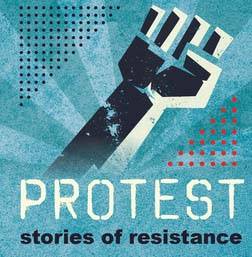This article is from the Spring 2014 issue of New Humanist magazine. You can subscribe here.
Whoever you support, football is about loss, and how you cope with it. Not just of individual matches, although the joy of victory is always tempered by the knowledge that it only defers defeat. This sense is heightened when star players get injured or are sold, and particularly when great managers leave for a bigger club or retire. The exits of Bill Shankly, Brian Clough or Sir Alex Ferguson suggested the end not just of golden periods for their clubs but of a whole way of life.
It’s a cliché that fans are the only constant in football, but as an abstract mass it’s true. But a crowd is composed of different individuals, match by match, year by year – something I felt most strongly when I lived in Brighton, and only went to five or ten Norwich City games per season, usually away, often alone, having never known the community of a regular seat at our home, Carrow Road.
Travelling to Millwall in November 2010, I met Jon Day, a City fan I’d talked to on Twitter. We got tickets together, and watched Norwich concede a late equaliser to draw 1-1. At half-time, I asked Jon for his thoughts. “As you just said on Twitter …” he began, and we laughed: this was the start of a friendship.
A year later, I moved to London. As I landed a temporary job, I saw Jon on Twitter, selling his season ticket as he was going to Australia for six months. I said I’d take it. “Glad it’s going to someone I know,” he wrote, telling me that Kev and the others who sat near him were really friendly, giving it to me for the remaining eleven home games of 2011-12 – Norwich’s first Premier League season for seven years – as well as the Newcastle United game in early December, as he’d be in the commentary box.
This was the perfect introduction to life as a season-ticket holder. Two years earlier, Norwich had been in the third division, losing 7-1 at home to Colchester before taking their manager Paul Lambert. He took us up at the end of that season before, incredibly, securing a second successive promotion in 2011. Lambert had fans’ favourites Wes Hoolahan and Grant Holt thriving, and both scored in our 4-2 win, but Jon didn’t make it: we’d gone to see Scritti Politti together on the Thursday, during which he barely spoke; he’d gone drinking the following evening and hadn’t shown up to drive me to Norwich as promised.
My anger at spending £50 on a train ticket soon faded – I’d seen the actual match for free, after all. But Jon drifted away: the last time I saw him was at a gig in January 2012, where he played pool all evening rather than watching the bands, and I worried that going to Australia might not help him. Jon never went: he moved back to Norwich soon after. In April, I saw my friend Rich asking Jon if he was okay as he’d been so quiet on Twitter. We discovered that he had been found dead.
Jon edited a Norwich fanzine, Y’Army, and was popular in the city. There were tributes in the local press and elsewhere: my favourite was the Burnley fans at a cricket match who added “RIP Jon Day” to their England flag, captured on Sky Sports. I decided to keep going: the first home match after Jon’s death was against Everton. I desperately wanted us to win; I had to settle for a creditable 2-2 draw, after which an old man shuffling past said, “You’re in the famous seat!” I smiled, silently, and we filed out together.
As usual, I met my friends afterwards. “Will you keep the ticket?” asked Rich. “He wanted you to have it.” I said I couldn’t, and that I’d try to get another one. I couldn’t attend the memorial service, but needed to make some gesture. I decided to give my Norwich scarf, which I’d got in 1994 and taken to every match since, to his family, with a note thanking him for the ticket, saying how much we’d miss him.
On the final day, we beat Aston Villa 2-0 at home. Having comfortably kept Norwich in the Premier League, Lambert – the best City manager I’d ever known – thanked us for our support, and Rich and I went to an end-of-season barbecue at our favourite pub. I took a melancholy walk back to the station, alone, past the Carrow Road gates, now closed, thinking about the people who left their scarves outside Valley Parade in 1985 or Hillsborough in 1989, when the number of deaths in those disasters required some collective commemoration.
Soon after, Lambert left for Aston Villa. Albeit in a far less exciting way, Lambert’s replacement, Chris Hughton, also kept us in the top division the following year, and, whenever I saw Kev, he said that nobody liked the man who’d taken “the famous seat”, and that they all wished Jon or I still had it.

